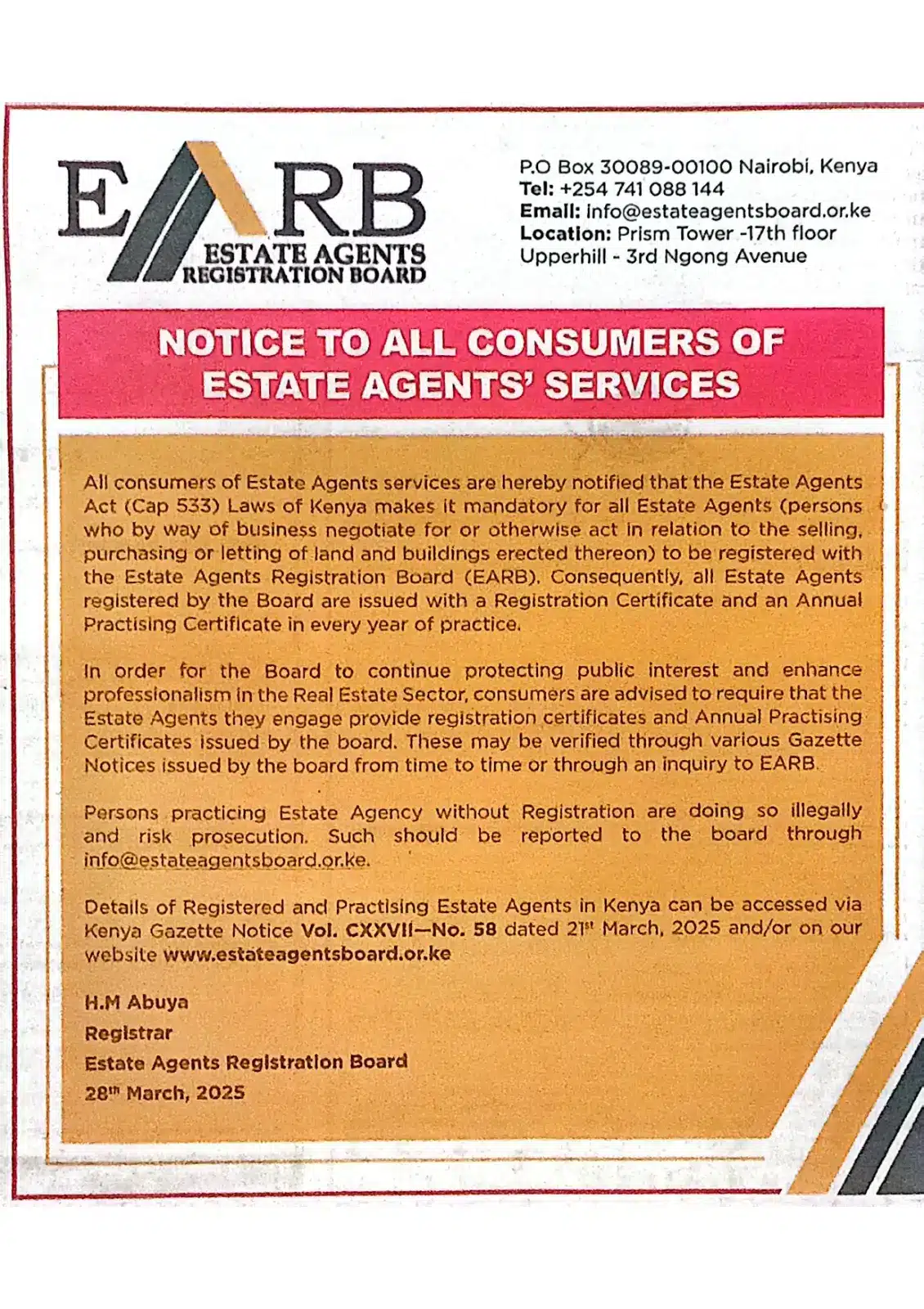A recent ruling by the Court of Appeal has cleared up a long-standing question in Kenya’s real estate world: Should VAT apply to the sale of commercial buildings?
Spoiler: Yes, it should. Even if the land itself is VAT-exempt.
Let’s break it down.
Section 5 and Paragraph 8 of Part II of the First Schedule of the VAT Act (VAT Act) exempts the sale, rental, hiring or leasing of land and residential premises from VAT (save for hotels and holiday accommodations).
So, What Happened?
In the case of Kenya Revenue Authority v Ndegwa [2025], the Court of Appeal made a big decision that changes how we look at VAT in commercial property deals.
Here’s the story:
David Mwangi Ndegwa bought a piece of land from Standard Chartered Bank. That land came with commercial buildings on it. The total value? About KES 70 million.
KRA stepped in and said, “Hold up — you owe KES 11.2 million in VAT (16% of the total value).”
Ndegwa disagreed and paid under protest, then went to court asking for a refund.
What Did the Lower Courts Say?
At first, the High Court sided with Ndegwa. They looked at the VAT Act and interpreted “land” to include everything on, above, and below the surface. So in their view, the entire transaction — land and buildings — was VAT exempt.
But there was a twist.
In a separate case (National Bank of Kenya v Commissioner of Domestic Taxes), the High Court said Parliament clearly meant to exempt residential buildings only, not commercial ones. So, VAT could apply to commercial buildings, even if they were on VAT-exempt land.
Confused yet? You’re not alone — this contradiction is what landed the case at the Court of Appeal.
Top Factors to Consider before Investing in Commercial Real Estate in Kenya
What Did the Court of Appeal Decide?
The Court of Appeal said the definition of “land” depends on the context — especially when it comes to taxes.
Their conclusion?
✅ Land is exempt from VAT.
❌ Commercial buildings are not.
So, even if you’re buying land with commercial buildings on it, VAT still applies to the buildings. That’s true even though the land itself is exempt.
The court also said there’s no ambiguity in the law. Paragraph 8 of the VAT Act is clear — residential premises are exempt, not commercial ones.
What Didn’t the Court Say?
While the ruling was clear, there are still some grey areas.
- It didn’t say if VAT should apply to just the value of the buildings, or to the combined value of land and buildings.
- It didn’t clarify how to handle VAT for mixed-use properties (those with both residential and commercial space).
So, there’s still more to be worked out in future cases.
Best Guide to Real Estate Taxation in Kenya
What This Means for You
If you’re buying or leasing commercial property, expect to pay VAT on the value of the buildings.
And if you’ve bought commercial property in the last few years and didn’t pay VAT? KRA might come knocking. The ruling suggests they could go back five years and issue new tax assessments.
Final Thoughts
This decision brings some much-needed clarity to the sector — and reminds all of us how important it is to understand tax rules when dealing with property.
But for buyers, this also means higher costs when investing in or leasing commercial buildings.
The story isn’t quite over yet — Ndegwa still has the option to appeal to the Supreme Court.





